هل تسمية الحكومة حكومة مهمة يكفي لنجاحها؟ هل السياسة العامة للبنان هي من ضمن المهة الموعودة؟ ام ان ان السياسة العامة وتصويب المسار العام ليس من شأن الحكومات ؟ تصحيح المسار السياسي اولاً! والا لن تنجح المهام المزعومة .
By William Christou — english.alaraby.co.uk — More than 50 Lebanese parliamentarians have signed a motion to open up a parallel investigation into the Port of Beirut explosion, sparking outrage among citizens who view the move as an attempt by officials to evade accountability. Judge Tarek Bitar is currently leading the probe into the 4 August 2020 Beirut port explosion, which killed over 200 people and injured more than 6,000 more. Bitar was appointed to the role after the previous investigator, Fadi Sawwan, was removed in February for refusing to abide by certain “red lines” in his investigation. The motion, filed by Speaker of the House Nabih Berri, would have referred the officials requested – including Caretaker Prime Minister Hassan Diab – by Bitar to a legal body known as the Supreme Council.
The Supreme Council is meant to impeach presidents and high-ranking officials but has not done this once since its inception as a legal body in 1990, according to Legal Agenda, which revealed the existence of the parliamentary motion. In addition, Legal Agenda noted that in order to convene the Supreme Council, two-thirds of the MPs must be present, something it deemed “impossible” to occur. Instead, the NGO accused the signatories of trying to obstruct Bitar’s probe and attempting to “smuggle suspects out of his grasp into a fictitious court”.
After the motion and its signatories were revealed on Wednesday and began to circulate on social media, at least four MPs withdrew their names from the list. Nicolas Nahas, who withdrew his signature, told The New Arab that while his opinion on the motion did not change, he preferred to stay out of what he saw as a “looming political fight”. “I’m still convinced that the path of Judge [Bitar] isn’t so clear. It isn’t evident that he’s after the real people who caused this issue,” Nahas said. He added that the MPs who signed the motion were trying to “accelerate the path” towards the investigation of the Beirut port explosion, which killed over 200 people, and denied that the motion was meant as an evasion of accountability.

By Najia Houssari — arabnews.com — The cost of food in Lebanon has skyrocketed 700 percent over the past two years, and more importantly, the increase has picked up pace in recent weeks, according to a Crisis Observatory report released on Wednesday. The Crisis Observatory is an interdisciplinary research program launched by the American University of Beirut (AUB) to track the repercussions of the economic crisis in Lebanon. The report reflected the current state of the country as malls and shops, usually bustling with Eid Al-Adha celebrations, were empty and stagnant this week as much of Lebanon’s middle class can no longer afford to go shopping due to the dramatic increase in prices. All of this is amid the country’s inability to form a government as Lebanon is teetering on the edge of social and economic collapse. While the AUB Crisis Observatory report revealed staggering financial shortcomings, it also concluded that Lebanon could turn into the “Venezuela of the Mediterranean” and it predicted a majority of the Lebanese people would struggle to secure their minimum needs without the help of relief institutions.
The report said the exponential and weekly increase of basic food prices is an indicator that the country is “slipping into hyperinflation.” The price of a basic food basket increased by more than 50 percent in less than a month, it said, while clothing has become somewhat of a luxury. Families complained about their inability to buy new clothes for their children on Eid Al-Adha because, as one mother put it, the pants she used to buy at 30,000 pounds are now sold for 400,000 pounds. “We were expecting to see more customers on Eid Al-Adha, but people’s purchasing power has plummeted,” Therese, owner of a bar in Beirut, said. “Lebanese expatriates who came to summer in Lebanon have helped revive the tourism a little bit, but we are afraid of what will happen once they leave.”

في الحلقة الاولى من حديث الرئيس ميشال سليمان الى موقع “الجريدة نيوز ” أشار فيها الى عزم الادراة الاميركية “التغيير ” في سياستها التي لا تؤيد التمديد لأي رئيس للجمهورية في لبنان ،ولكن يبدو أن المسؤولين الاميركيين قد عملوا الى تبديل هذه السياسة وقال دايفيد هيل للرئيس سليمان : ” أنا هنا لأطرح معك هذا الموضوع لمصلحة البلد” أجاب سليمان : أبدا ،مع العلم أن هناك مسؤولين عرب وأجانب كانت لديهم نفس الرغبة ، وهذا الكلام نفسه قلته للرئيس الفرنسي فرنسوا هولاند الذي عمل على هذا الموضوع منذ أكثر من ٨ اشهر من انتهاء ولايتي في نيس لدى تسليمي شعلة الالعاب الفرنكوفونيةالسابعة.
جواب الرئيس سليمان كان لدايفيد هيل كالتالي : أنا إّذا بدي مدّد يجب أن يكون هذا الامر لمصلحة البلد ، أضاف سليمان في جوابه لدايفيد هيل : لدي مواقف حادة من حزب الله ، وإذا بقيت على مواقفي هل أستطيع أن أحكم ؟ طبعا لا ، وإذا اردت التراجع عن هذه المواقف بماذا أستطيع أن أخدم البلد بعد ان افقد مصداقيتي ؟ وبالتالي قلت ، الخروج بما أنا هو عليه افضل إذ ربما يخلق صدمة ايجابية حيث يتداعى الجميع الى تجنب الفراغ، فأردف هيل : اتمنى ان تقبل ولفترة قصيرة وقلت له الاّن ادارتك وانت تحترماني وتزورني لنقل هذه التمنيات اما ما اتوقعه لاحقاً هو ان تتصل بي في الهاتف لاقبل تمديد فترة التمديد الاولى اذا قبلتها ، وهذا ما قلته للرئيس هولاند في اّخر لقاء معه في الخامس من اذار عام ٢٠١٤ في قصر الاليزيه خلال اجتماع المجموعة الدولية لدعم لبنان حيث قال لي هولاند : فخامة الرئيس انا إقترحت عليك أن تمددّ منذ ثمانية أشهر وكان جوابك لي “أنه من الناحية الدستورية لا يحق لي ” لكنني سألت و إستوضحت الامر وكان الجواب : نعم يمكن أن يحصل التمديد من خلال تعديل دستوري وهناك سوابق قد تم تسجيلها في لبنان ، جوابي كان : فخامة الرئيس نعم لديك الحق ، لكن لدي مواقفي الواضحة وإذا كنت تقبل أن أتراجع عنها عندها يمكن الحديث في هذا الموضوع .
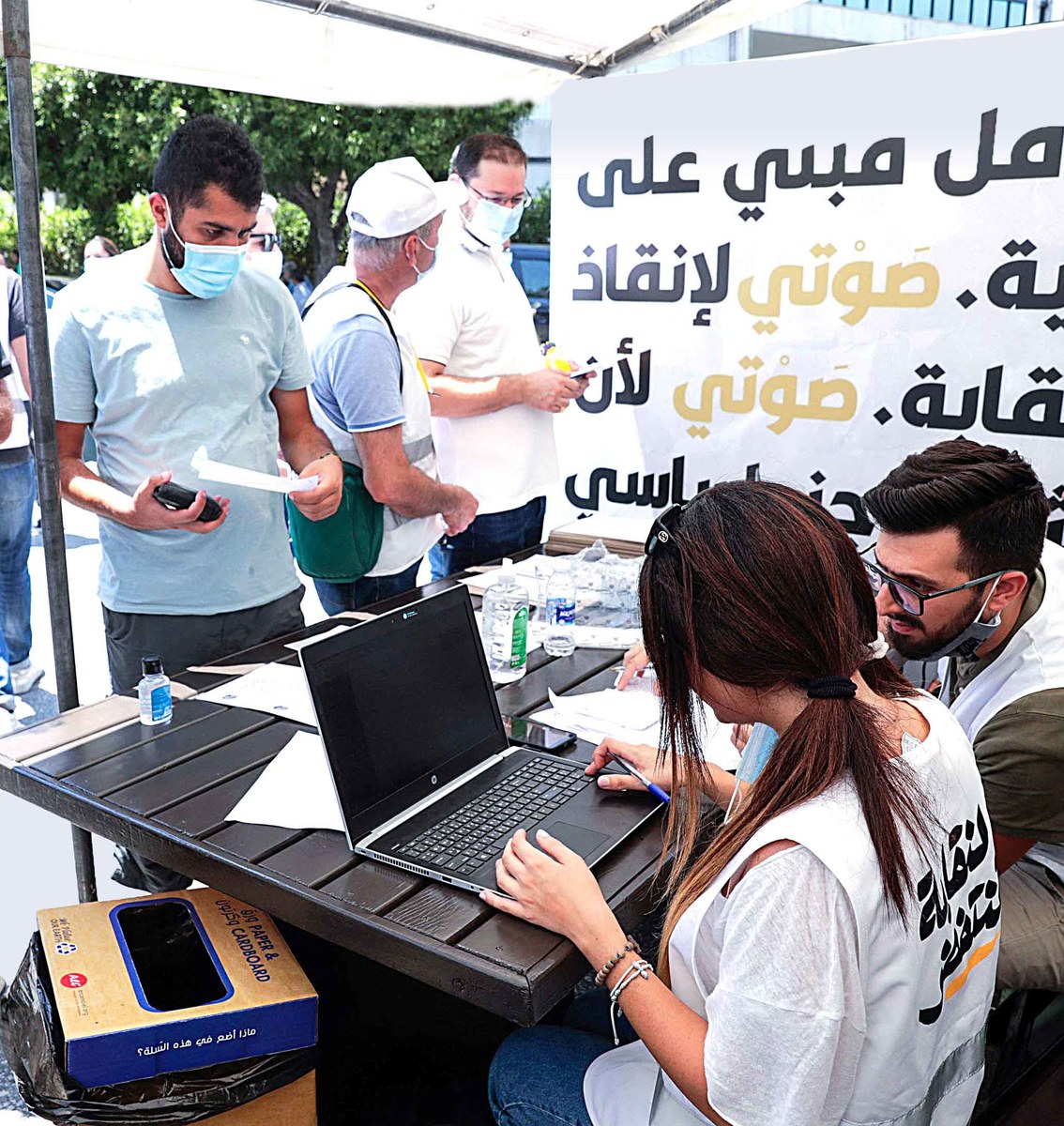
By Najia Houssari — arabnews.com — BEIRUT: Lebanon’s President Michel Aoun announced on Monday that parliamentary consultations to choose a new prime minister will begin on July 26. Lebanon has been run by a caretaker government for nearly a year. Meanwhile the nation’s currency has collapsed, many people have lost their jobs and banks have frozen customers’ accounts in what has been described as one of the most severe financial crises the world has seen in modern times. Saad Hariri, who was chosen as prime minister-designate nine months ago, resigned on Thursday after months of negotiations with Aoun failed to result in the formation of a new government. The previous administration, led by Prime Minister Hassan Diab, resigned amid public anger following the explosion at Beirut’s port on Aug. 4 last year. Since then, the escalating financial collapse has fueled hunger, unrest and fuel shortages as the country struggles with its worst crisis since the civil war that began in 1975. The Central Bank’s foreign reserves are rapidly running out and the nation’s currency has lost most of its value since 2019, pushing more than half of the population into poverty amid soaring prices.
A delegation from the US Department of Treasury’s Terrorist Financing and Financial Crimes office arrived in Beirut on Monday. It will meet “with financial sector interlocutors and civil society groups to engage in discussing issues related to corruption, illicit finance and counterterrorism,” according to the US Embassy in Lebanon. Dana Stroul, the US deputy assistant secretary of defense for the Middle East, warned on Saturday that “the inability of the Lebanese to put food on their tables could lead to violence.” She also expressed concerns that “the failure to form a government and Hezbollah’s ongoing attempts, due to the support it receives from Iran, to challenge the Lebanese state” are “keeping Lebanon weak and not providing an alternative to the legitimate government.” She added that “the Pentagon is closely monitoring the situation and encouraging Lebanon’s leaders to take prompt steps to prevent the outbreak of this type of violence.” Meanwhile the results of Syndicate of Engineers elections in Beirut on Sunday suggested that voters are beginning to take matters into their own hands.
The opposition Syndicate Revolts coalition, which formed during the Oct. 17, 2019 revolution, achieved a resounding victory over the ruling parties that is unprecedented in the history of syndicate elections in Lebanon.
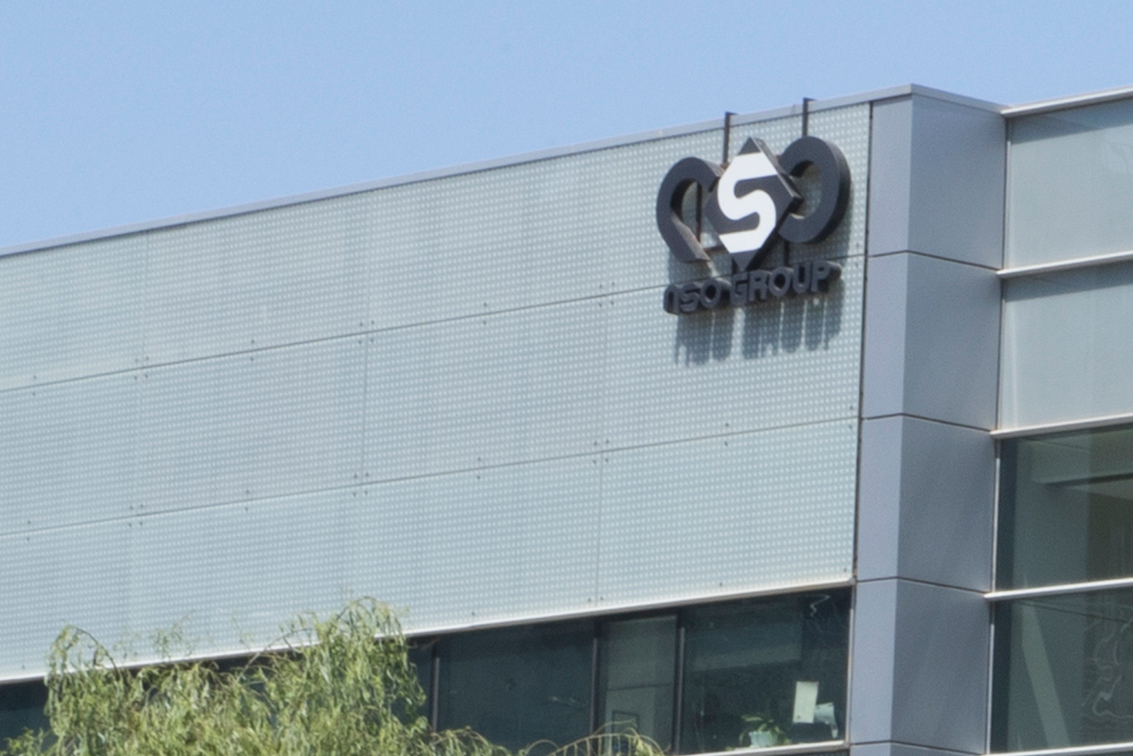
Israeli NSO Group is well known for selling hacking software to government clients
By Lindsay Kornick | Fox News — The Washington Post neglected to reference an Israeli firm’s Democratic connections when releasing an investigation into a hacking scandal. On Sunday, the Washington Post published an article titled “Private Israeli spyware used to hack cellphones of journalists, activists worldwide.” The investigative report revealed the Israeli firm NSO Group was responsible for the successful hacks of 37 smartphones belonging to journalists, activists, and business executives. The piece explained, “Military-grade spyware licensed by an Israeli firm to governments for tracking terrorists and criminals was used in attempted and successful hacks of 37 smartphones belonging to journalists, human rights activists, business executives and two women close to murdered Saudi journalist Jamal Khashoggi, according to an investigation by The Washington Post and 16 media partners.”
The investigation also emphasized that other phones could have likely been targeted as well, conflicting with the NRO Group’s original claim of only targeting terrorists or suspected criminals. This investigation led to the NRO Group’s name trending through Twitter as well as several critiques from journalists. However, the 4000-word article neglected to reference the firm’s connections to an advisor for President Joe Biden. In a Twitter thread, New York Times reporter Kenneth Vogel explained that the NSO Group had paid the company SKDK, the Democratic-aligned firm of Biden advisor Anita Dunn until late 2019. “The Israeli firm NSO GROUP was behind the spyware used to hack journalists & human rights activists, a @WashingtonPost investigation reveals. Not included in the story: NSO GROUP paid @SKDK (BIDEN adviser ANITA DUNN’s firm) for advice until late 2019,” Vogel tweeted. He further explained, “NSO GROUP also paid BEACON GLOBAL STRATEGIES (a firm started by JEREMY BASH, an MSNBC analyst who served as CIA & Pentagon chief of staff under OBAMA) until early 2020
The truth about the Syrian funds in Lebanon does not total more than 6 Billion Dollars
And this money was placed in Lebanese banks because they did not have other option
There were many sanctions from the international community not to move out the money from Syria
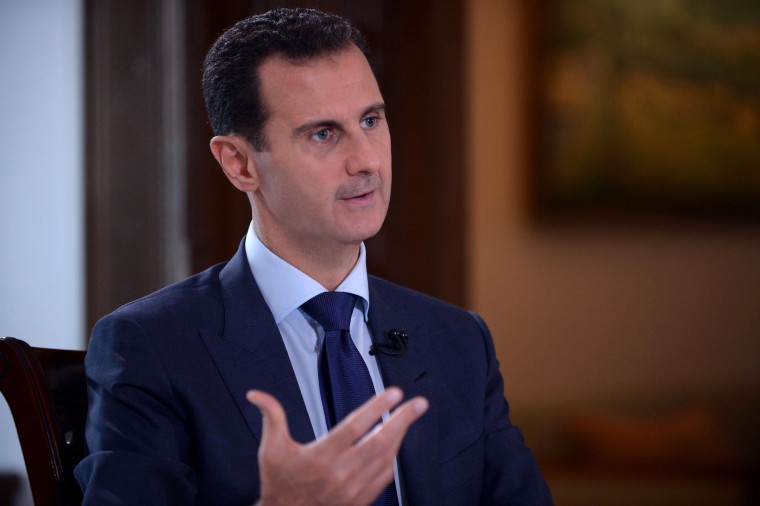
.. ومصادر مصرفية لبنانية تردّ عليه by annahar.com —
ليست المرة الأولى التي يتحدث فيها الرئيس السوري بشار الأسد عن أن في المصارف اللبنانية ما يراوح بين 40 إلى 60 مليار دولار ودائع للسوريين محتجزة في هذه المصارف ولذلك لا يتمكن الاقتصاد السوري من النهوض. ولا يتحدث الرئيس السوري عن ان تلك الاموال هرّبها اصحابها من المصارف السورية وليسوا في صدد اعادتها ولو تم تحريرها حاليا من لبنان، بل سيجهدون لتحويلها الى دولة ثالثة.
مصادر مصرفية لبنانية استغربت عبر وكالة “أخبار اليوم” هذا الكلام وقالت إن سبب عدم نهوض الاقتصاد السوري هو الحرب التي شهدتها البلاد منذ العام 2011، والعقوبات المفروضة على سوريا ونظامها ومؤسساته، إضافة إلى أن عملية إعادة الإعمار لم تبدأ بعد وليس من دولة واحدة حليفة للنظام السوري بدأت عملها في هذا الإطار، وشددت هذه المصادر على أن كلام الأسد يأتي في إطار الذرائع التي يريد من خلالها تبرير ركود الاقتصاد السوري وتراجعه، متجاهلا المشاكل الداخلية التي يعانيها النظام هناك.

by ncregister.com — WASHINGTON — Bishop Gregory John Mansour of the Eparchy of St. Maron in Brooklyn, New York, and Bishop Abdallah Elias Zaidan of the Eparchy of Our Lady of Lebanon of Los Angeles spoke with the Register at the 2021 International Religious Freedom Summit in Washington, D.C., on Wednesday. They shared how the beleaguered nation of Lebanon is a “religious haven” for so many faiths, including Christians, and detailed some of the threats and challenges to that coexistence. Bishop Mansour went to Lebanon earlier this month for the synod of bishops’ meeting with the head of the Maronite Church, Patriarch Cardinal Béchara Boutrous Rai.
Bishop Mansour called Lebanon “unique” because “it was formed, on purpose, to be a religious haven for Christians and Muslims.” He summarized the history of its formation, which was “at the initiative of the Maronite patriarch, Patriarch Elias Hoayek,” who in 1919 “went on a boat from Lebanon to Versailles, France, to meet with the Allied forces after they had defeated the Ottoman Empire so that a Lebanon carved out of the Middle East could include Christians and Muslims alike and the boundaries even were purposefully designed so that Sunni, Shiite and Christians could live in conviviality.” “By God’s grace, he got his way, and Lebanon was formed in a national pact between the religious communities, which is at the very heart of it. It was a pact between the religious communities, 18 different communities in Lebanon,” he said. Drawing on the history of its formation, Bishop Mansour said that he and Bishop Zaidan were at the religious-freedom summit in order to “promote and to advocate for a Lebanon that continues to be, as Pope John Paul II said, ‘more than a country, a message.’”
Current Challenges
Bishop Zaidan told the Register that, today, Lebanese Christians are facing challenges to that message, including “fear of that abuse of power outside the government from militia, specifically Hezbollah, that could undermine the existence of the country as an independent country, which means this would undermine democracy.” “That’s why the Church always stands for the government to be a strong, unified government for everybody,” he said. “Lebanon is a country for all, not just the Christians, not just one Muslim [group]; it’s for everybody to have and enjoy religious freedom — freedom at all sides, not freedom from religion, freedom of religion. And we want peace.” He continued, “That’s why our Patriarch Cardinal Rai has been a great advocate for neutrality of Lebanon, so that Lebanon can continue its mission; and we ask all the countries of the world to support that effort and to come together and support Lebanon.”
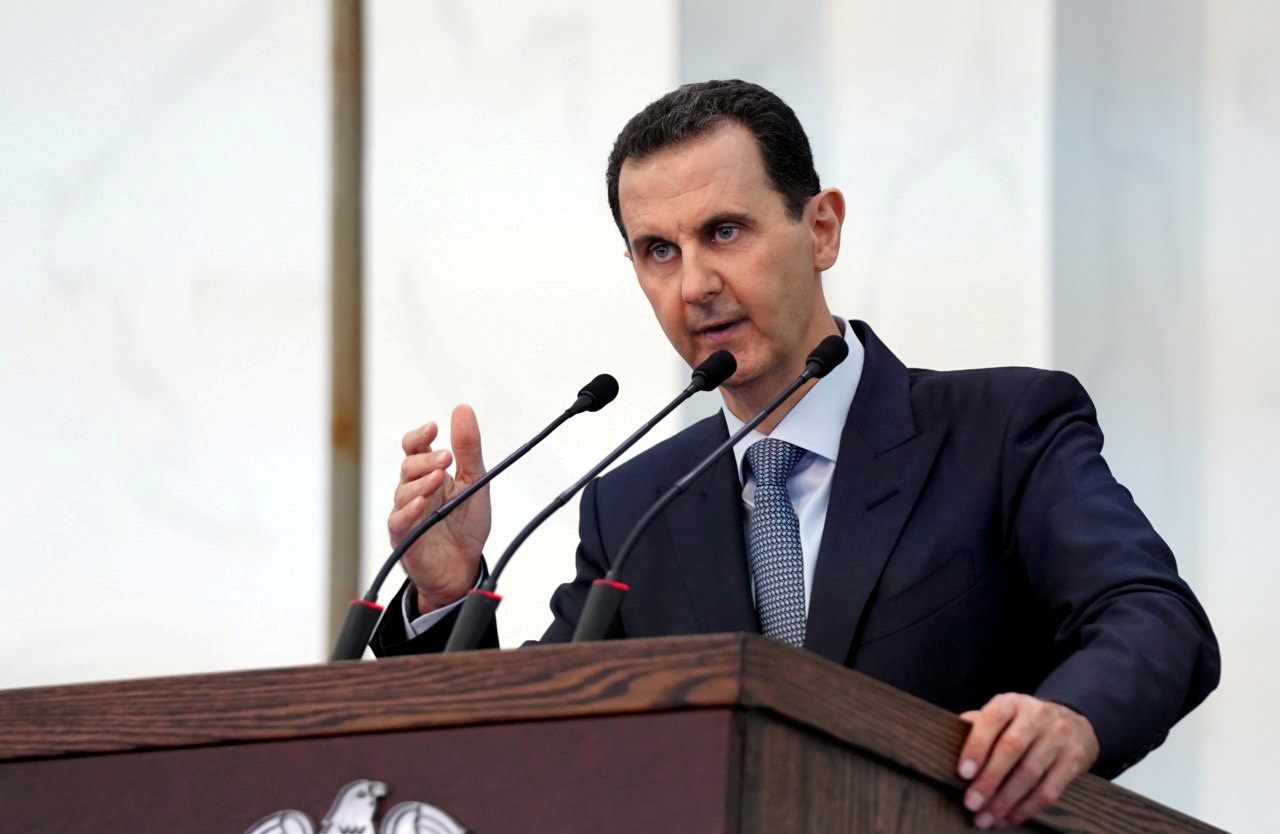
BEIRUT (Reuters) – Syrian President Bashar al-Assad said on Saturday the main impediment to investment in the country was money stuck in ailing Lebanese banks. In a speech after being sworn in as president for a fourth term, Assad said estimates suggested the frozen funds were worth between $40 billion and $60 billion. “Both figures are enough to depress an economy like ours,” he said. Lebanon is in the throes of a deep economic meltdown that is threatening its stability. Lebanese banks have locked depositors out of their accounts and blocked transfers abroad since the start of the country’s crisis in late 2019. Many Syrian front companies had long circumvented Western sanctions by using Lebanon’s banking system to pay for goods which were then imported into Syria by land.
Assad also said Syria would continue working to overcome difficulties caused by the Western sanctions imposed over its decade-long war. “Sanctions haven’t prevented us from securing our basic needs but they have created some choke points,” he said. “We will continue to work to overcome them without announcing what methods we used before to do that or what we will use in the future.” Syrian authorities blame Western sanctions for widespread hardship, including soaring prices and people struggling to afford food and basic supplies. Assad secured a fourth term in office in a May election, winning more than 95% of the votes.
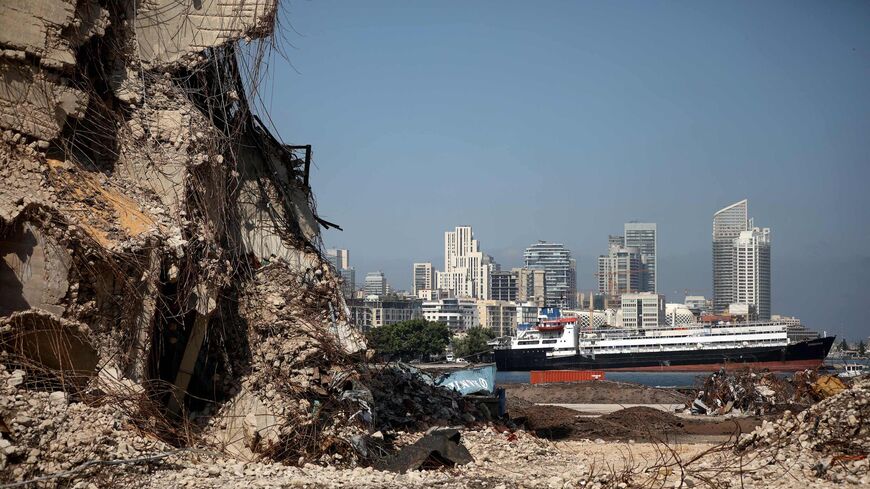
by al-monitor.com — France will organize an international fundraiser for Lebanon next month, timed to coincide with the first anniversary of the deadly explosion that tore through Beirut. The UN-supported conference on Aug. 4 will be hosted by French President Emmanuel Macron and will aim to “respond to the needs of the Lebanese whose situation is deteriorating every day,” France’s Foreign Ministry said in a statement. The French announcement comes a day after Lebanese Prime Minister-designate Saad Hariri resigned after failing to form a government amid the partisan gridlock. Hariri said he withdrew his nomination after he and President Michel Aoun were unable to agree on a proposed cabinet lineup. Hariri’s predecessor, current caretaker Prime Minister Hassan Diab, quit amid ongoing protests demanding accountability for the Aug. 4 explosion in Beirut, which officials blame on a stockpile of highly explosive ammonium nitrate stored improperly at Lebanon’s most vital port. The blast, which killed more than 200 people, injured thousands more and gutted much of the capital, added to the country’s economic woes.



